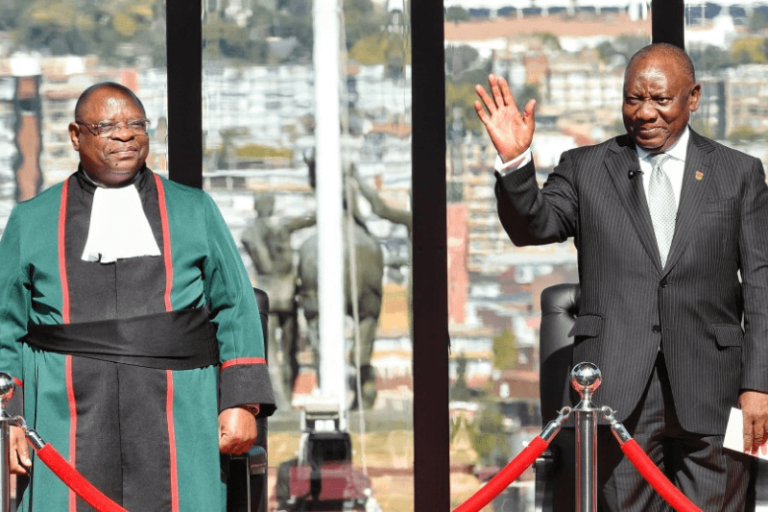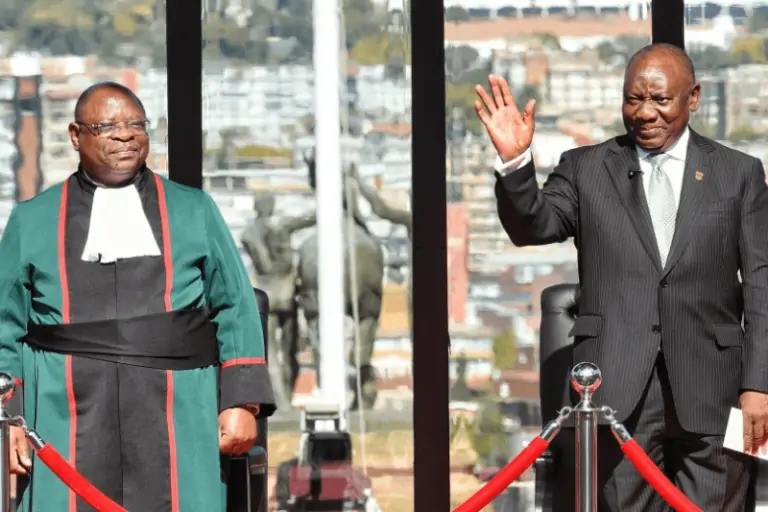

south africa's historic government of national unity
With the ten political parties that make up a Government of National Unity (GNU), South Africa has started a new chapter in a major political development. With its loss of a parliamentary majority in the most recent elections, this coalition indicates a break from the conventional dominance of the African National Congress (ANC). Leading the coalition with 40.2% of the vote is the ANC; the Democratic Alliance (DA) follows with 21.8%.
The coalition comprises the Inkatha Freedom Party, the Patriotic Alliance, the Freedom Front Plus, the United Democratic Movement, Rise Mzansi, the GOOD party, and the Pan Africanist Congress of Azania among other varied groups. With 287 seats overall in the 400-seat parliament, these parties guarantee a strong foundation of support for government.
The careful balance in South African politics is shown by the expulsion of leftist parties such as the Economic Freedom Fighters (EFF) and former President Jacob Zuma’s uMkhonto weSizwe party, which combined attracted about a quarter of the votes. To promote national unity, the ANC, seeing the need of cooperation outside of the present coalition, is still open to talks with non-partaking parties.
The founding of the GNU has inspired hope among financiers about economic reforms. Under hopes of policy continuity and stability, the rand has risen and bonds and stocks have rallied as well. Aiming to stabilize public finances and drive sustainable development, the National Treasury has confirmed its dedication to fiscal discipline and economic stability. Crucially for rebuilding investor confidence and economic resilience, the 2024 budget clearly shows a road towards lowering fiscal deficits and stabilizing debt levels.
The makeup of the next government is much awaited given the ANC and DA as main coalition partners. From social welfare enhancement to economic recovery, this cabinet formation will show a mix of political ideas meant to handle different national difficulties. Under the GNU, the government strategy will probably give consensus-building and multi-party collaboration top priority, guiding South Africa into a critical turning point in its democratic path.
Ahead, the GNU will have great difficulties juggling the goals of its coalition members, correcting socioeconomic inequities, and negotiating difficult international relations. The absence of well-known opposition leaders such as Julius Malema of the EFF and the residual influence of former President Jacob Zuma can possibly affect the stability and policy orientation of the alliance. Still, the dedication to inclusive government and economic transformation lays the groundwork for overcoming obstacles.
The founding of a Government of National Unity by South Africa represents a sea change in its political scene. The coalition seeks to support stability, advance economic development, and maintain democratic values by building coalitions beyond ideological boundaries. The ANC’s ability to fit a new political reality emphasizes how strong South Africa’s democratic institutions are among changing sociopolitical forces. The world keeps careful eye to see how this historic project shapes the destiny of the country as the coalition starts its tenure.
The Gujarat Titans (GT) team confirmed Thursday that fast bowler Kagiso Rabada is taking an early IPL 2025 exit to…
The International Finance Corporation gives Raxio Group $100 million to accelerate their data center building efforts throughout Sub-Saharan African regions.…
The Oklahoma City Thunder secured their tenth consecutive victory by beating the Chicago Bulls 145-117. This victory raised their season…
The Board of Control for Cricket in India introduced a detailed list of cricket matches that will take place at…
Rob Walter Resigns his Position as coach for the Proteas men's team for white-ball games because personal problems needed attention.…
Starting April 2, South African drivers will get lower costs when filling their tanks as fuel prices decrease for all…
This website uses cookies.